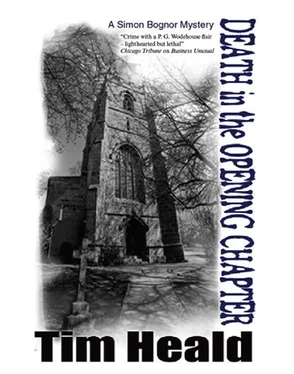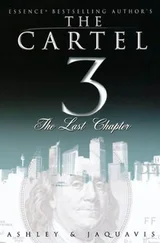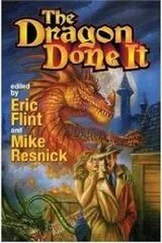Tim Heald - Death in the opening chapter
Здесь есть возможность читать онлайн «Tim Heald - Death in the opening chapter» весь текст электронной книги совершенно бесплатно (целиком полную версию без сокращений). В некоторых случаях можно слушать аудио, скачать через торрент в формате fb2 и присутствует краткое содержание. Жанр: Криминальный детектив, на английском языке. Описание произведения, (предисловие) а так же отзывы посетителей доступны на портале библиотеки ЛибКат.
- Название:Death in the opening chapter
- Автор:
- Жанр:
- Год:неизвестен
- ISBN:нет данных
- Рейтинг книги:5 / 5. Голосов: 1
-
Избранное:Добавить в избранное
- Отзывы:
-
Ваша оценка:
- 100
- 1
- 2
- 3
- 4
- 5
Death in the opening chapter: краткое содержание, описание и аннотация
Предлагаем к чтению аннотацию, описание, краткое содержание или предисловие (зависит от того, что написал сам автор книги «Death in the opening chapter»). Если вы не нашли необходимую информацию о книге — напишите в комментариях, мы постараемся отыскать её.
Death in the opening chapter — читать онлайн бесплатно полную книгу (весь текст) целиком
Ниже представлен текст книги, разбитый по страницам. Система сохранения места последней прочитанной страницы, позволяет с удобством читать онлайн бесплатно книгу «Death in the opening chapter», без необходимости каждый раз заново искать на чём Вы остановились. Поставьте закладку, и сможете в любой момент перейти на страницу, на которой закончили чтение.
Интервал:
Закладка:
Perhaps it was a vanishing age, but it was not yet gone, and the Bognors were privy to it. Or, at least, to a part of it. They knew they were lucky and that their friends, Sir Branwell and Camilla, were immensely privileged. It was incorrect, wrong, feudal, but if you were on the right side, definite fun.
The Brandons were on the wrong side of it – below the salt and on the distaff side of the green baize. This too was deceptive, for there was a real sense in which the Brandons ran the show. He was the regimental sergeant major while Sir Branwell was the ensign or second lieutenant. The baronet had breeding but was wet behind the ears; he carried a sword while RSM Brandon had only a pacing stick, silver-headed; the little officer dined in a smart mess; the sergeant-major presided over a rougher, less gilded institution. Yet, without the Brandons of this world, the army would cease to be. If Sir Branwell were abolished, no one would notice.
There was a paradox here, and its dying did not make it any less of a paradox. In a classless society, where Jack was as good as his master, there were few nuances and complexities. The old society was unfair, sometimes criminally so, but it was satisfyingly full of contradictions. One, possibly the most obvious, was that those who seemed to be in charge, were actually little more than figureheads. Jack was better than his master, but the charade was the reverse. The truth was that the true bosses were those who seemed to be bossed, but the truth was not to be acknowledged. The Sir Branwells of this world were perceived to be the monarchs of all they surveyed, and yet the reality was that those such as Brandon and his wife, who bowed and curtsied, tugged at their forelocks and were kept ruthlessly in place, were actually the masters now, and always had been.
‘You can drop the “sir”, Brandon,’ said Bognor, who, by dint of his education, his association with Sir Branwell and, above all, his ‘K’, was ‘officer class’. He smiled, patronizingly. ‘There are no witnesses. And I don’t hold with that sort of thing. So just relax. Call me Simon.’
‘Yes, sir,’ said Brandon. Then aware of Bognor’s incredulous reaction, he stammered something more egalitarian, along the lines of ‘Simon… er… Mr Bognor… er… Sir Simon.’
Bognor, not particularly a stickler for modes of address and correct procedure, was embarrassed, and for almost the first time, thought that perhaps his new knighthood had merit if only when it came to ease of address. At least one knew where one was He had never had a problem with the head cheese at Apocrypha being constantly addressed as ‘master’. There was even, he supposed, something to be said for ‘sir’, if only on the grounds that it disguised ‘amnesia’. He had known people who called everyone ‘Sonny’ or ‘Darling’, or even ‘Fred’, when they were unable to remember someone’s real name. In that sense, maybe ‘sir’ was no worse. It carried unfortunate undertones of obsequiousness and deference, but it had its all-purpose uses.
‘Sorry,’ said Brandon, opting out of the problem altogether – as most people, in Bognor’s anecdotal observation, usually did. ‘It’s ingrained, I’m afraid. Also, I have to say that I have a better relationship with the boss than any number of the young, who wouldn’t dream of calling anyone by anything other than their Christian name.’
‘Unless it were “mate”!’ said Mrs Brandon-who-did, and who must have been born with a forename, but seemed to have acquired a status without one, just as governesses and housekeepers were accorded the mythical status of ‘Mrs’, whether married or not.
Bognor was afraid he was becoming sidetracked and bogged down in stuff which had nothing to do with murder. Well, maybe it did. Lese padre. Maybe parishioners had become overfamiliar, or, on the other hand, not familiar enough. And before he could help himself, he found himself asking, ‘Did you call the Reverend Sebastian, “sir”?’
This was obviously not a question either of the servants had been asked before, and it seemed to take them by surprise.
‘The thing about vicars,’ said Brandon eventually, and obviously speaking for both of them, ‘is that he has a title and one therefore usually called him “vicar”. If not, then I suppose, yes, we addressed him as “sir”, but remember he was a Fludd and that made a difference.’
Bognor had forgotten that the reverend was not just a man of God, but also a Fludd, which in the local order of preference counted for rather more. He was reminded of the Cabots and their ilk in Boston, and could perfectly well understand that in the context of Mallborne and its environs, it was better to be a Fludd than a god. Presumably, a butler who worked for the senior living Fludd was superior to a mere vicar who worked for God. But he was not going down that peculiarly English path.
‘Would you say you knew the vicar well?’ he asked, and was rewarded once again by the appearance of original thought. This was gratifying, almost as if he had asked an original question.
‘Difficult to say, sir,’ answered Brandon after a silence. ‘You see he was our vicar.’
‘Quite,’ said Bognor. ‘I mean, absolutely.’
There was a pause. Awkward.
Bognor broke it.
‘Would you say you and Mrs Brandon were churchgoers? C of E? Know what I mean?’
‘The missus and I are Methodists,’ said Brandon, ‘born and bred. But, of course, there’s no Methodist Church in Mallborne, and once we entered service with Sir Branwell’s father, God bless the colonel, we sort of became C of E like everyone else.’
‘I quite understand,’ said Bognor. He did too. The Church of England was that sort of religion. A matter of social convenience, as much as a true church with one foundation. If it had a foundation, it had more to do with what sort of newspaper one read, how one voted, and whether one dressed up to attend, than with true religion. True religion in the C of E was in short supply, and many who adhered to it, believed it was better that way.
‘So, basically, you saw the Reverend Sebastian once a week in church?’
‘And when he and Mrs Fludd came for sherry.’
This was Mrs Brandon. She had spoken. Bognor had the definite impression that while her husband did most of the talking, it was she who did most of the thinking.
‘Did they often come for sherry?’
‘Usually after matins. Mainly on high days and holy days.’ This was Brandon, back in his accustomed speaking role.
‘So, you really only saw the vicar in his official capacity?’
‘I suppose so. You could say that the sherry was semi-official. But it was duty sherry. Not a lot of fun.’
The Brandons managed a wintry smile.
‘And Mrs Fludd? The rector’s wife.’
‘She sang in the choir,’ said Brandon. ‘Soprano. Not very good. We called her the red-faced warbler. Not as good as she thought she was. She thought she was quite special. Led to even more friction with the barmaid’s daughter. She’s here this year, calling herself Vicenza Book. Not what we called her when she lived here. But she can sing, I’ll give her that. Mrs Brandon and I know a bit about singing. Got all the Tenors on DVD, and Bryn Terfel. She was good. Mrs Fludd wasn’t. Not her fault.’
He stopped suddenly. He had obviously said too much. Or thought he had.
‘So your relations with the deceased and his wife were formal, correct, but slightly distant.’
The Brandons thought for a moment.
‘Yes,’ agreed Brandon, speaking as usual, for both. ‘You could say that. Nothing against the gentleman. Nor Mrs Fludd. But we weren’t what you’d call, intimate.’
‘I see,’ said Bognor, thinking that people like the Brandons were the wise monkeys of the situation. They saw loads; heard a great deal; talked among themselves. But they were not part of the action. Dispassionate observers. Well, uninvolved observers. Worth plugging into, but not themselves, of the party, and therefore above – or below – suspicion.
Читать дальшеИнтервал:
Закладка:
Похожие книги на «Death in the opening chapter»
Представляем Вашему вниманию похожие книги на «Death in the opening chapter» списком для выбора. Мы отобрали схожую по названию и смыслу литературу в надежде предоставить читателям больше вариантов отыскать новые, интересные, ещё непрочитанные произведения.
Обсуждение, отзывы о книге «Death in the opening chapter» и просто собственные мнения читателей. Оставьте ваши комментарии, напишите, что Вы думаете о произведении, его смысле или главных героях. Укажите что конкретно понравилось, а что нет, и почему Вы так считаете.












